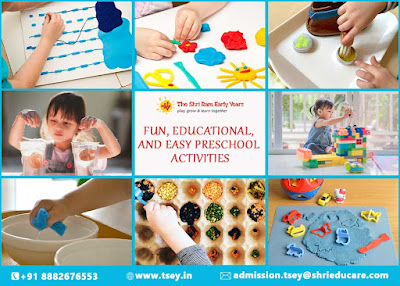4 WAYS TO BOOST SELF CONFIDENCE IN CHILDREN
Maintaining a good sense of self-worth is one of the essential components of successful child development. A child’s social, behavioural, and emotional health is vital in determining how well they will deal with failures, peer pressure, and other life obstacles.
A healthy mental state is also associated with having a high level of positive self-esteem. Building your child’s self-confidence helps them behave well in social settings and acts as a buffer for them when they are put in stressful or difficult situations.
The following are some everyday actions that can benefit your child’s sense of self-worth.
What Is Self-Esteem?
Children’s perceptions of themselves, in terms of what they believe about themselves and their capacities to accomplish specific tasks, form the basis of their self-esteem. It’s influenced by how much they feel loved and the amount of support, encouragement, and praise (or praise) they get from significant others in their lives, such as their parents and instructors.
It is unnecessary to believe that the world revolves around you or that your needs are more essential than those of others to have self-confidence. Similarly, good self-esteem is not the same as arrogance, narcissism, or entitlement. Instead, create a healthy sense of balance in your child’s self-esteem by instilling other vital qualities such as empathy, kindness, good manners, generosity, and thankfulness.
Unconditional Love Is The Key
Your children will develop a sense of safety and belonging that is critical to their understanding of who they are as individuals if they are aware of the depth of your affection for them. Your appreciation for them builds the foundation for all of the positive and enduring relationships that they will go on to form later in their lives.
Therefore, embrace your child when you part ways with them, curl up with them, share a story, and show them that you love them daily. This foundation of love will support your children as they continue to establish their social circles, make friends, and form ties with colleagues as they get older.
Spend Quality Time Together
You must show your child that you value their company and that you like spending time with them by playing games. Simply having fun with your child can have a positive impact on both of you in a variety of ways.
When children engage in healthy play, not only do they develop self-assurance in their ability to be the exciting and entertaining person who is capable of forming strong social bonds, but studies have shown that this activity also increases a child’s likelihood of being happy and decreases the possibility that they will suffer from depression or anxiety.
Boosting your child’s self-confidence will help them handle the transition back to school and make it easier for them to participate in social activities. In addition, having a good time together while playing and laughing it up is a fantastic stress relief for both of you.
Give Your Child The Responsibility Tasks
Your child will develop a sense of purpose and success when they are given age-appropriate responsibilities and chores to complete. Make sure you let them know how much you appreciate their efforts, even if their work isn’t perfect. Praise them for everything they do well, and reassure them that over time, they will grow better and better at many things, including the chores that they have to perform.
Kids feel more in control of their lives when they have obligations and must-do chores. And in a time when things are unpredictable, having responsibility over even the most minor duties around the house can go a long way toward building confidence and resilience in the face of adversity.
Teach Them To Be Independent
Kids typically experience a significant surge in their level of autonomy throughout their time in preschool in Gurgaon. When children reach the age where they are in middle school, many have begun to spend time alone at home, walk to school by themselves, and assist with caring for younger siblings.
You must give your children the opportunity to become progressively more self-reliant. For example, you should encourage them to figure out how to communicate with their teachers about any issues on their own, organise their homework assignments, ensure that their soccer uniforms are packed and ready, and so on.
The practice of parenting known as “helicopter” weakens children’s capacities to handle challenges on their own and has a detrimental effect on their sense of self-worth. It robs them of their independence, as well. So be a supportive parent and strive towards the child’s growth. For more details, call TSEY, the best preschool school!



Comments
Post a Comment